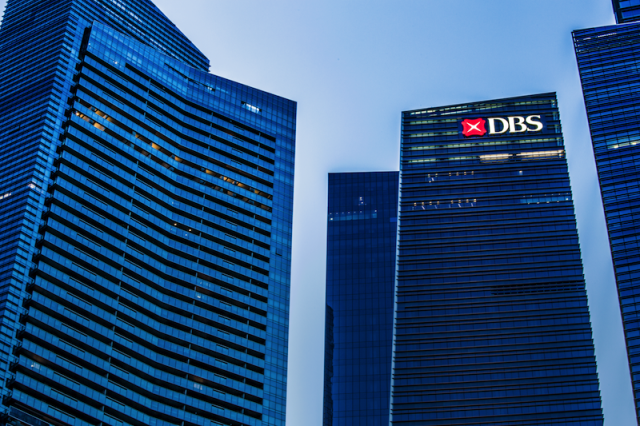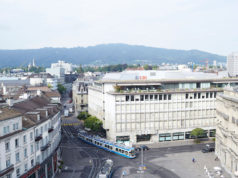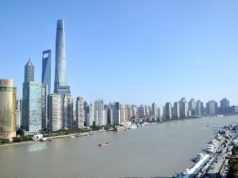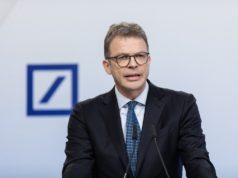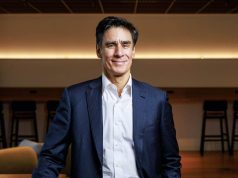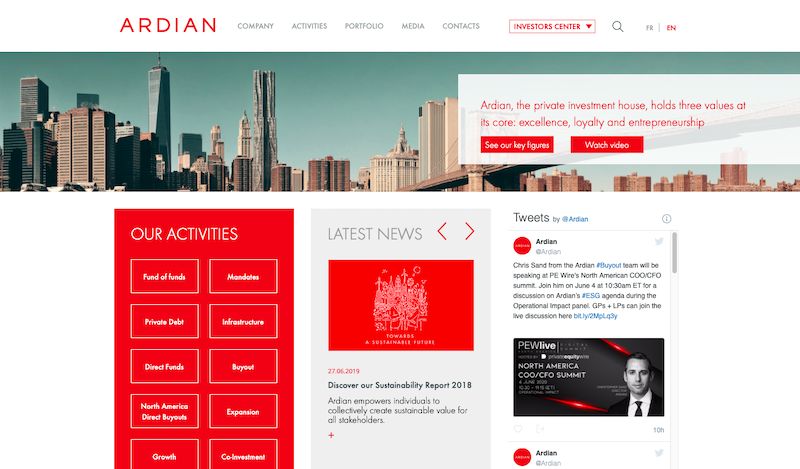DBS Group Reports $2.1 Billion Net Profit for 2024 Q1 with Market Value Reaching Record S$101 Billion / $74 Billion, DBS Group Reported $7.6 Billion Net Profit for FY2023
2nd May 2024 | Hong Kong
DBS Group has reported $2.1 billion (S$2.96 billion) net profit for 2024 Q1 with market value reaching a record S$101 billion ($74 billion). For FY2023, DBS Group reported $7.6 billion net profit. DBS CEO Piyush Gupta: “Our record earnings have given us a strong start to the year. We had broad-based business momentum as loans grew and both fee income and treasury customer sales reached new highs. While geopolitical tensions persist, macroeconomic conditions remain resilient and our franchise is well positioned to capture business opportunities. We are optimistic that total income and earnings will be better than previously guided and we will be able to deliver another year of strong shareholder returns.” On 2nd May 2024 late afternoon, DBS Bank internet banking & payment services had faced disruptions. On 30th April 2024, the Monetary Authority of Singapore (MAS) ended (30/4/24) DBS digital disruption 6-month pause imposed on DBS Bank (1/11/2023) to acquire new business ventures, reduce branch network, reduce ATM network and implement non-essential IT changes due to repeated disruptions of DBS banking services in 2023. DBS Bank will take up to 24 months to setup structural changes to digital banking services.
“ DBS Group Reports $2.1 Billion Net Profit for 2024 Q1 with Market Value Reaching Record S$101 Billion / $74 Billion, DBS Group Reported $7.6 Billion Net Profit for FY2023 “
DBS Group Reports $7.6 Billion Net Profit for FY2023, Commercial Book Net Interest Income Increased 33% to S$14.3 Billion with 2.76% Margin Due to Higher Interest Rates, Wealth Management Fees Increased 13% to S$1.51 Billion, CEO Piyush Gupta Takes Pay Cut of 30% Amounting to S$4.14 Million for DBS Digital Disruptions in 2023

9th February 2024 – DBS Group has reported $7.6 billion (S$10.3 billion) net profit for FY2023, with commercial book net interest income increasing 33% to $10.6 billion (S$14.3 billion) with 2.76% margin due to higher interest rates, and wealth management fees increasing 13% to $1.1 billion (S$1.51 billion). DBS Group CEO Piyush Gupta is also taking a pay cut of 30% amounting to $3 million (S$4.14 million) for DBS digital disruptions in 2023. DBS CEO Piyush Gupta: “We achieved an outstanding financial performance in 2023 with return on equity of 18.0% significantly above previous years. The franchise and digital transformations carried out over the past decade have reaped substantial benefits in a higher interest rate environment. The stronger profitability has enabled us to step up capital returns to shareholders through a bonus issue as well as make an inaugural contribution of SGD 100 million towards a 10-year community support initiative. While interest rates are expected to soften and geopolitical tensions persist, our franchise strengths will put us in good stead to sustain our performance in the coming year.” More info below:
DBS Group Reports $7.6 Billion Net Profit for FY2023, Commercial Book Net Interest Income Increased 33% to S$14.3 Billion with 2.76% Margin Due to Higher Interest Rates, Wealth Management Fees Increased 13% to S$1.51 Billion, CEO Piyush Gupta Takes Pay Cut of 30% Amounting to S$4.14 Million for DBS Digital Disruptions in 2023

7th February 2024 – DBS Group achieved a record performance in 2023 as net profit rose 26% to SGD 10.3 billion. Return on equity climbed from 15.0% to a new high of 18.0%. Total income grew 22%, exceeding SGD 20 billion for the first time, driven by a higher net interest margin, a rebound in fee income and record treasury customer sales. Asset quality was resilient with specific allowances remaining low at 11 basis points of loans.
For the fourth quarter, net profit grew 2% from a year ago to SGD 2.39 billion. A 9% rise in total income to SGD 5.01 billion from higher net interest income and non-interest income resulted in a 7% increase in profit before allowances to SGD 2.80 billion. Total allowances of SGD 142 million were higher than a year ago when there had been a general allowance write-back. Compared to the previous quarter, net profit fell 9% due to a lower net interest margin and seasonally lower non-interest income.
Dividends and bonus issue
- The Board proposed a final dividend of 54 cents per share for the fourth quarter, an increase of six cents from the previous payout. This brings the ordinary dividend for the financial full year to SGD 1.92 per share, an increase of 42 cents from the previous year.
- In addition, the Board proposed a bonus issue on the basis of one bonus share for every existing 10 ordinary shares held. The bonus shares will qualify for dividends starting with the first-quarter 2024 interim dividend and will increase the pace of capital returns to shareholders. Barring unforeseen circumstances, the annualised ordinary dividend going forward will be SGD 2.16 per share over the enlarged share base, which represents a 24% increase from the SGD 1.92 per share for financial year 2023. Based on the closing share price on 6 February 2024, the post-bonus annualised dividend yield would be 7.5%.
- The stepped-up capital returns reflect the Group’s strong capital position and are in line with the policy of paying sustainable dividends that rise progressively with earnings.
Corporate social responsibility (CSR) commitment
- As part of a recently announced CSR commitment of up to SGD 1 billion over 10 years to support vulnerable communities, an inaugural contribution of SGD 100 million was set aside from the year’s profits. The commitment aims to improve the lives of the underprivileged in DBS’ key markets. The first initiative under this pledge was announced in December 2023 – a SGD 30 million partnership with Singapore’s Ministry of Social and Family Development to help underprivileged families with children living in rental flats.
One-time bonus for junior employees
- In line with the latest guidelines issued by Singapore’s National Wages Council to help lower-income employees cope with higher costs of living, junior employees across the group, which make up half of total headcount, will each receive a one-time bonus. The aggregate payment of SGD 15 million was set aside in expenses for 2023.
Accountability for digital disruptions
- The Board determined that the variable compensation for the CEO and other members of the Group Management Committee should be cut to hold them accountable for the series of digital disruptions during the year. Their 2023 variable compensation was collectively reduced by 21% from the previous year despite record 2023 profits. The CEO took a deeper cut of 30%, which amounted to SGD 4.14 million.
- DBS has made a whole-of-bank effort and committed SGD 80 million to implementing its technology uplift and resilience roadmap. These efforts will enable the bank to better pre-empt disruptions to its services, provide customers with alternate channels for payments and account enquiries during disruptions, and shorten incident recovery time. Going forward, the bank will continue with its investments to sustain efforts to provide reliable services to customers.
Full-year performance
- Commercial book net interest income rose 33% to a record SGD 14.3 billion as net interest margin expanded 65 basis points to 2.76% from higher interest rates. The improvement in net interest margin resulted from the repricing of assets with higher interest rates. Although deposit costs also increased, the pace was slower compared to asset yields.
- Loans rose 1% or SGD 6 billion in constant-currency terms to SGD 416 billion. Excluding Citi Taiwan, which contributed SGD 10 billion, underlying loans fell 1% or SGD 4 billion. Trade loans accounted for most of the decline, falling 8% or SGD 3 billion due to lower activity and unattractive pricing. Non-trade corporate loans were stable at SGD 246 billion. Despite a healthy loan pipeline, rising interest rates led to higher repayments. In addition, there was a shift in China corporate borrowing to cheaper options onshore in the first half. Housing loans were little changed, with a 1% or SGD 1 billion growth in the fourth quarter offsetting a decline in the first nine months. Other consumer loans fell 2% or SGD 1 billion as wealth management customers repaid loans in a high interest rate environment.
- Deposits rose 3% or SGD 13 billion to SGD 535 billion. Citi Taiwan contributed SGD 12 billion, while underlying deposits were stable. Casa outflows decelerated compared to the previous year and were replaced by fixed deposits.
- Commercial book net fee income rose 9% to SGD 3.38 billion. Card fees grew 22% to a record SGD 1.04 billion from higher spending as well as the integration of Citi Taiwan. Wealth management fees increased 13% to SGD 1.51 billion, reflecting strong net new money inflows, a shift from deposits into investments and bancassurance, and contribution from Citi Taiwan. Fee income from other activities rose 4% as higher loan-related fees were partially offset by weaker transaction service fees as trade finance slowed.
- Commercial book other non-interest income increased 18% to SGD 1.79 billion as treasury customer sales reached a record.
- Treasury Markets total income declined 38% to SGD 725 million due to higher funding costs.
- Expenses rose 14% to SGD 8.06 billion led by an increase in staff costs from salary increments and a higher headcount. Excluding Citi Taiwan and non-recurring technology and other costs, expenses rose 10% and the underlying cost-income ratio was 39%.
- Profit before allowances grew 29% to a new high of SGD 12.1 billion.
Fourth-quarter performance
- Commercial book net interest income was 1% lower than the previous quarter at SGD 3.64 billion. Net interest margin fell seven basis points in the fourth quarter to 2.75%, which was stable to the exit net interest margin in the third quarter. The decline was due to the full-period impact of higher deposit costs from the third quarter and the accumulation of fixed-rate asset positions. Loans were stable over the quarter. Compared to a year ago, net interest income rose 7% bolstered by higher interest rates.
- Commercial book net fee income rose 3% from the previous quarter to SGD 867 million as a higher contribution from Citi Taiwan more than offset the impact of seasonally slower wealth management activity. Compared to a year ago, net fee income rose 31% from higher wealth management, card and loan-related fees as well as the consolidation of Citi Taiwan.
- Commercial book other non-interest fell 22% from the previous quarter to SGD 390 million due partly to seasonally lower treasury customer sales. Compared to a year ago, other non-interest income rose 22% on higher treasury customer sales to wealth management customers.
- Treasury Markets total income declined 32% from the previous quarter and 45% from a year ago to SGD 113 million due to higher funding costs.
- Expenses increased 8% from the previous quarter and 12% from a year ago to SGD 2.21 billion. Excluding the full-quarter impact of Citi Taiwan and non-recurring technology and other costs, expenses rose 2% from the previous quarter and 3% from a year ago.
- Profit before allowances was SGD 2.80 billion, 11% below the previous quarter and 7% higher than a year ago.
Business unit performance
- Full-year Consumer Banking / Wealth Management income rose 35% to SGD 8.96 billion from higher interest rates and growth in wealth management product sales and card fees. Wealth Management income increased to a record, with assets under management growing 23% to a new high of SGD 365 billion, underpinned by strong net new money inflows and the consolidation of Citi Taiwan. Institutional Banking income grew 22% to SGD 9.36 billion as cash management income rose 73% from higher interest rates. Treasury customer flows and loan-related fees were also higher. Treasury Markets income declined 38% to SGD 725 million due to higher funding costs.
Balance sheet
- Asset quality remained resilient in the fourth quarter. Non-performing assets declined 5% from the previous quarter to SGD 5.06 billion while the NPL ratio improved from 1.2% to 1.1%. New non-performing asset formation fell and was more than offset by repayments and write-offs.
- Specific allowances for the fourth quarter remained low at SGD 139 million or 11 basis points of loans, bringing the full-year amount to SGD 512 million or 11 basis points of loans. General allowances of SGD 3 million were taken in the fourth quarter and SGD 78 million for the full year, compared to write-backs for both corresponding periods a year ago. Allowance coverage stood at 128% and at 226% after considering collateral.
- Capital and liquidity remained healthy. The Common Equity Tier-1 ratio was at 14.6%, while the leverage ratio of 6.6% was twice the regulatory minimum. The liquidity coverage ratio of 144% and the net stable funding ratio of 118% were both above regulatory requirements of 100%.
Sign Up / Register
Caproasia Users
- Manage $20 million to $3 billion of assets
- Invest $3 million to $300 million
- Advise institutions, billionaires, UHNWs & HNWs
Caproasia Platforms | 11,000 Investors & Advisors
- Caproasia.com
- Caproasia Access
- Caproasia Events
- The Financial Centre | Find Services
- Membership
- Family Office Circle
- Professional Investor Circle
- Investor Relations Network
Monthly Roundtable & Networking
Family Office Programs
The 2025 Investment Day
- March - Hong Kong
- March - Singapore
- July - Hong Kong
- July - Singapore
- Sept- Hong Kong
- Sept - Singapore
- Oct- Hong Kong
- Nov - Singapore
- Visit: The Investment Day | Register: Click here
Caproasia Summits
- The Institutional Investor Summit
- The Investment / Alternatives Summit
- The Private Wealth Summit
- The Family Office Summit
- The CEO & Entrepreneur Summit
- The Capital Markets Summit
- The ESG / Sustainable Investment Summit














